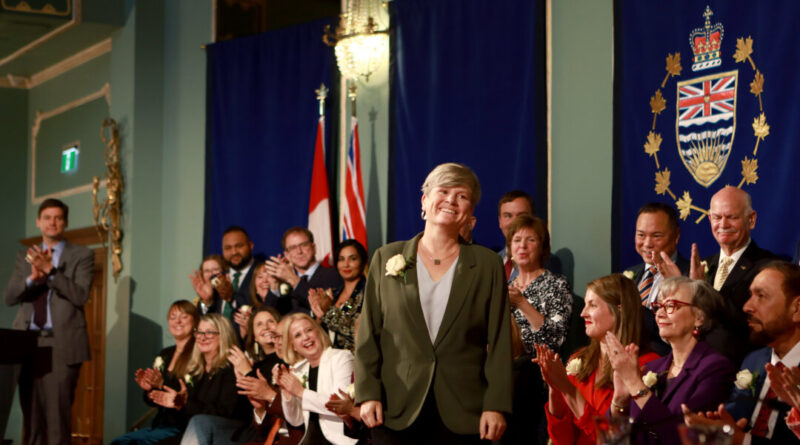BC Premier Directs Health Minister to Implement Involuntary Treatment for Addictions and Mental Health in Mandate Letter
B.C.’s health minister has been mandated to expand involuntary care for individuals with addictions and severe mental health issues in the province.
Last year, Premier David Eby announced the government’s intention to develop involuntary treatment facilities. After winning the October 2024 election, Eby directed Health Minister Josie Osborne to proceed with the plans in a mandate letter dated January 16, 2025.
Dr. Vigo’s role involves collaborating with partners to assist individuals with severe addictions, brain injuries from drug poisoning, and mental health disorders.
Eby has also tasked the health minister with working alongside addiction health professionals and epidemiologists to conduct research on interventions for addiction and implement best practices in the field.
Osborne is also responsible for establishing a comprehensive care system for individuals seeking mental health and addiction services in B.C., including inpatient and outpatient options.
The Surrey Pretrial Services Centre is set to be the first correctional facility developed for this purpose. Additionally, the Alouette Correctional Centre in Maple Ridge was designated as the first secure housing and care facility.
Eby remarked, “This announcement marks the beginning of a new phase in our response to the addiction crisis. We are taking action to provide individuals in need with the necessary care to ensure their safety, thereby enhancing the safety of our communities as well.”
The opposition Conservatives have requested more details about the involuntary care treatment plan, indicating a need for further action.
BC Conservative MLA Elenore Sturko, the shadow minister for public safety, expressed disappointment at the lack of transparency regarding the criteria for placement of involuntary care beds and the decision to incorporate them into the correctional system.
Sturko described the current plans as inadequate, with only a small number of beds allocated at present.
Furthermore, Minister Osborne has been instructed to develop strategies to reduce the prescription of opioids by implementing safeguards to prevent medication diversion and working with healthcare providers to decrease prescription rates.
Reversing Decriminalization
In September 2024, Eby introduced a new approach to addressing addictions and mental health issues, shifting away from B.C.’s previous strategy of drug decriminalization.
The province had commenced a three-year decriminalization pilot in January 2023, approved by Health Canada. However, in 2024, B.C. requested that Health Canada revoke the exemption allowing for the decriminalization of certain substances.
Eby emphasized the province’s continued support for individuals with addiction while highlighting the urgent need for program changes to address public drug use issues.
Decriminalization in B.C. had led to concerns about public drug use in various settings like parks, hospitals, and public transport.





